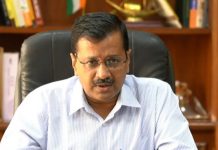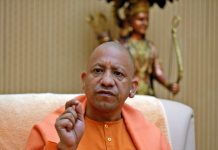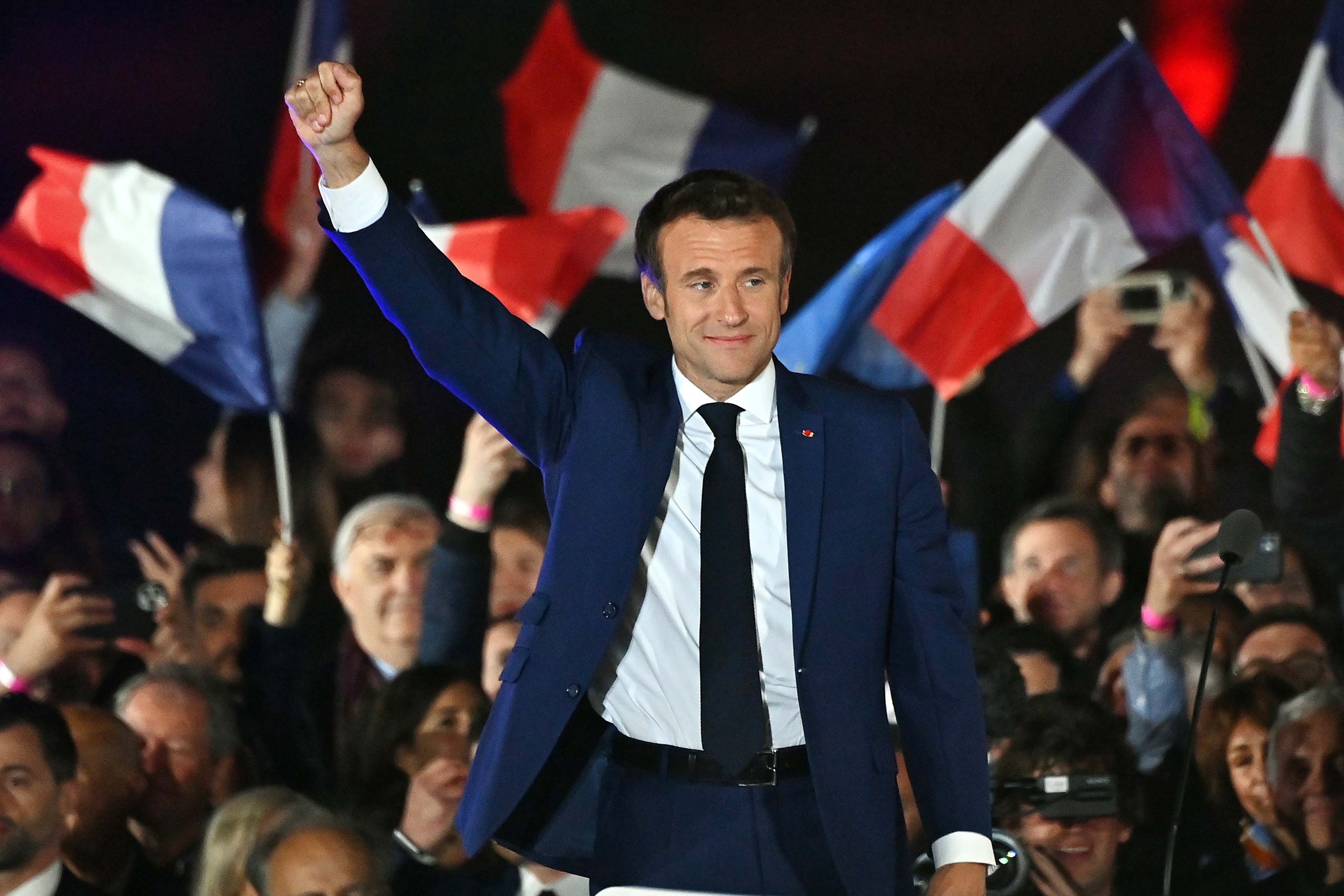
Macron has been hailed for winning a second term as the President, but he is very well aware of the challenges ahead of him. His far-rightist rival, Le Pen may leverage her radical ideology in the French parliamentary polls to be held in June this year, writes Gopal Misra
French President Emmanuel Macron finally trounced his far-rightist rival, Le Pen, giving a sense of respite to the US-led NATO and European Union that their military support to Ukraine continues without any hindrances from a close ally, France.
Similarly, for the Muslims, comprising nearly eight per cent of the total electorate in France, the polarisation of anti-Muslim forces is being prevented at least for the time being or till the parliamentary elections.
As it is often stated that the battle is won, but the winning of a war is a prolonged exercise. It is true for Macron too. He is being greeted for winning a second term as the president, but he knows the challenges ahead of him. Le Pen, the irrepressible daughter of Jean-Marie Le Pen, has been zealously pursuing her father’s political agenda. She fought against Macron twice in 2017 and 2022 respectively. She may not contest in future, but might intensify her extreme ideology in the forthcoming parliamentary polls scheduled in June this year.
In the 2017 National Assembly polls, Macron’s party, La Republique En Marche could win 308 members in the 577-strong House. Macron during the 2017 polls had promised to introduce proportional representative system, but he did not take steps to introduce it. During the just concluded presidential election, he had gone an extra-mile to win Muslim voters, and repeatedly cautioned that if his rival wins, she would ban the wearing of the Muslim headscarf in public. The communal polarisation may intensify during the June polls. Meanwhile, the hard-left third-placed candidate, Jean-Luc Mélenchon, has appealed to his voters to consolidate their votes in the forthcoming Parliamentary polls. Mélenchon stated that the defeat of Marine Le Pen was “very good news for the unity of our people,” and vowed to lead the fight against Emmanuel Macron’s party in the upcoming parliamentary elections. He further stressed that Macron’s “presidential monarchy survives by default and under the constraint of a biased choice.” It means that a sizeable chunk of the electorate , which had voted Macron in the presidential elections, may shift to other political outfits. Thus, the political war being fought by the US-led western powers to keep France under their “spell” is continuing. The Macron’s victory, perhaps, has just given a little more space for the resolution of the ongoing Russia-Ukraine war as well as calming down any further eruption of violence against Muslims in Europe. For Macron too, the political battle has not ended with his victory, but he has to intensify his political campaign for ensuring the victory of a favourable prime minister in the parliamentary polls scheduled later this year.
With a much lesser margin, Macron’s victory is being attributed to the large scale abstention rate, estimated to be 28 per cent; and the margin between him and the far-right candidate, Marine Le Pen with just 58.5 per cent votes polled in his favour against 41.5 per cent of his rival. He is the first president during the past two decades to win a second term. The victory margin has reduced this time; during the 2017 polls he had trounced her with the 66 per cent support of the electorate. It appears that he has also received a sizeable chunk of the left-oriented voters. During the first round of the April 10 polling, the voters’ third choice was for the far-left socialist candidate, Jean-Luc Melenchon, with 21 per cent of the vote, followed by far-right newcomer Eric Zemmour with 7.2 per cent, whose anti-immigrant comments have made Le Pen appears to be moderate. Le Pen and Macron have been attempting to win over as many of these voters before the final voting. It means that Macron has again intensified his campaign to win the support of these voters for ensuring a favourable parliamentary victory. It is also being stated that the electorate, who did not exercise their franchise might vote in favour Macron’s rivals. It means that the political situation in the country might remain ‘fluid ‘on the key issues whether to whip up the ongoing conflicts in Europe, especially extending much bigger support to Ukraine, and buy peace with Islamic zealots or persuade Ukraine to agree to the Russian terms to keep off from NATO. For attaining his political initiatives, he has to ensure that a premier, who shares his political views, should be elected to the high office.
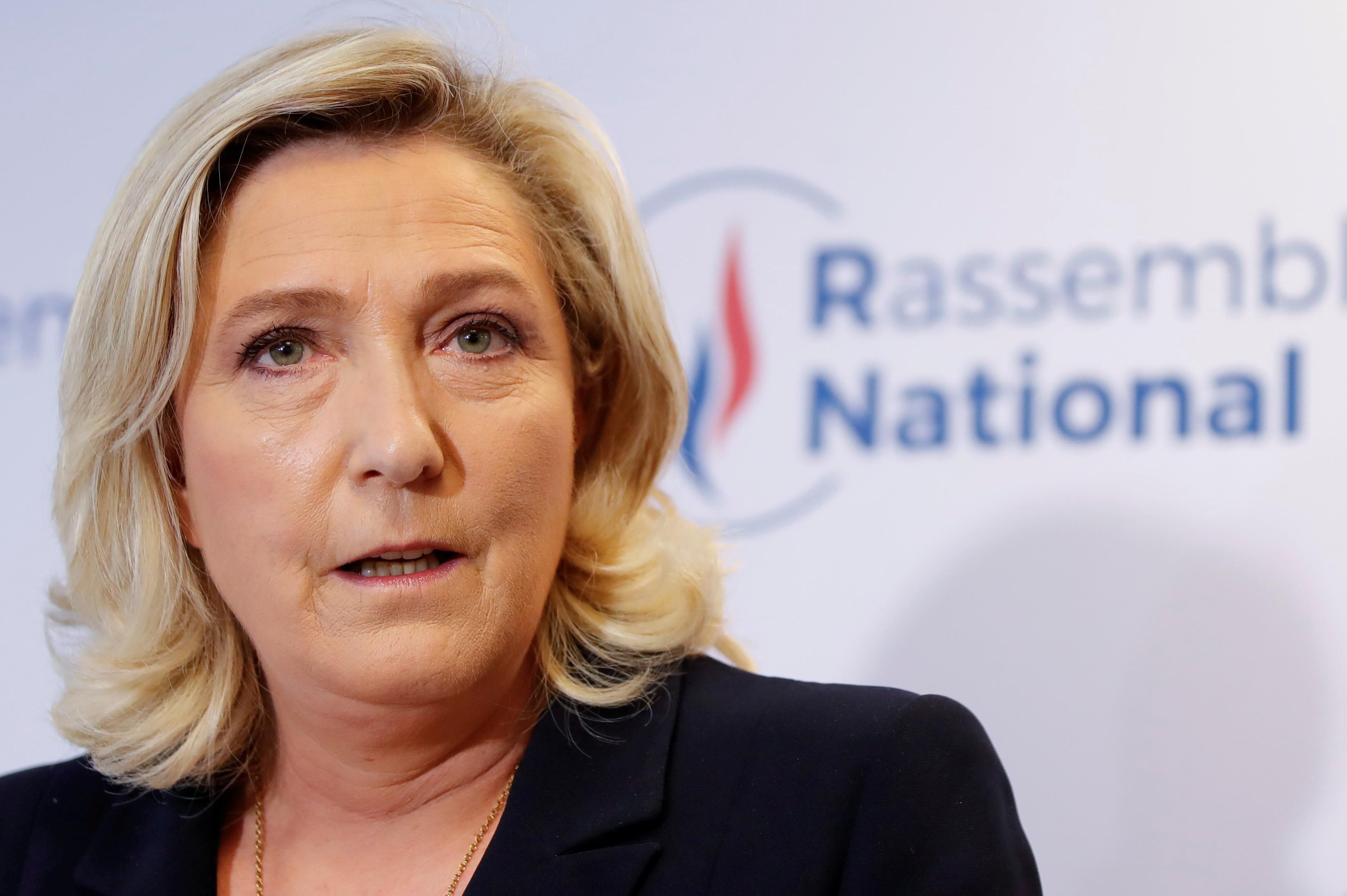
Macron’s victory rally on the Sunday night, April 24, had echoed to the sound of the “Ode to Joy,” the European Union’s anthem, where he assured the people that “I’m not the candidate of one camp anymore, but the president of all of us.” He was also greeted by the European Commission President Ursula von der Leyen, who tweeted in French, “Together we will make France and Europe advance.”
The Friendly Advice
In spite of the victory of Macron, it is not clear how the common people have taken the advice of three European powers, Germany, Italy and Portugal that they should ensure defeat of the ultra-rightist, Marine Le Pen. It is for the first time that such an appeal has been issued within the European Union; however, it is yet to be ascertained how the electorate would respond to such a ‘blatant interference’ in their domestic affairs. The issue may come up and might be raised by Macron’s political rivals during the parliamentary polls.
It is believed that Le Pen, if elected, might have influenced Russians engaged in this avoidable conflict for ending their invasion. There is a sizeable number of the people in France who ‘genuinely think’ that the ongoing conflict is just ‘fratricide’. It is yet to be seen, whether during the parliamentary elections, the earlier advice of German Chancellor Olaf Scholz, Portuguese Prime Minister, Antonio Costa, and Spanish Premier, Pedro Sanchez, would influence the voters. They had jointly written in the Le Monde daily that is “for us not an election like others”, they further cautioned that France faces a “choice between a democratic candidate… and a candidate of the extreme right who openly joins ranks with those who attack our liberty and democracy,.” They stated that the French will choose a France that has been a “beacon of democracy”.
The three leaders also claimed that populists and extreme right figures across Europe had turned to Russian President Vladimir Putin as an “ideological and political model and echoed his nationalist claims.” Le Pen met Putin in the Kremlin in 2017 and accepted Russia’s 2014 annexation of Crimea, while her party also took a loan from a Russian-Czech bank.
Interestingly, in spite of adopting anti-Russian posture, most of the European countries are keen for an early resolution of the conflict. They do not want that a war on Europe’s eastern flank should continue any more. The conflict reminds them of the World War-II. With the rising inflation, they are already facing the impact of the Russia-Ukraine conflict on their economy. However, the electorate appears to be divided; older French voters, particularly those above 70, are more liberal while younger voters are increasingly attracted to the far left or the right.
A Narrative of a Swiss Spy
Many Europeans may find the recent expose, a narrative by a former Swiss intelligence officer, Jacques Baud, quite credible, that the ongoing Ukraine conflict was avoidable. America and Britain have deliberately imposed the war on Europe for ‘feeding their war industries’. In the ongoing Ukrainian conflict, the role of France has either been of a colluder or ineffective or both.
The narrative has recently been published in ‘Centre Francais de Recherche sur le Renseignement’. It says that how the Minsk-I and Minsk-II agreements of 2014 and 2015, which could have ensured peace by ensuring the rights of the Russian speaking people in Ukraine. These agreements for peace, however, have deliberately been flouted by the erstwhile Ukrainian president, Victor Yanukovych, as well as the present incumbent, Volodymyr Zelenskyy. It appears that just a few weeks before the outbreak of the war the French President, Emmanuel Macron, could only make empty promises to the Russian President, Vladimir Putin. The narrative also blames Macron for stressing upon the Normandy Format, but without seriously implementing the Minsk-I and Minsk-II agreements. The two agreements could have allowed a reasonable autonomy to the Russian speaking areas of Ukraine.
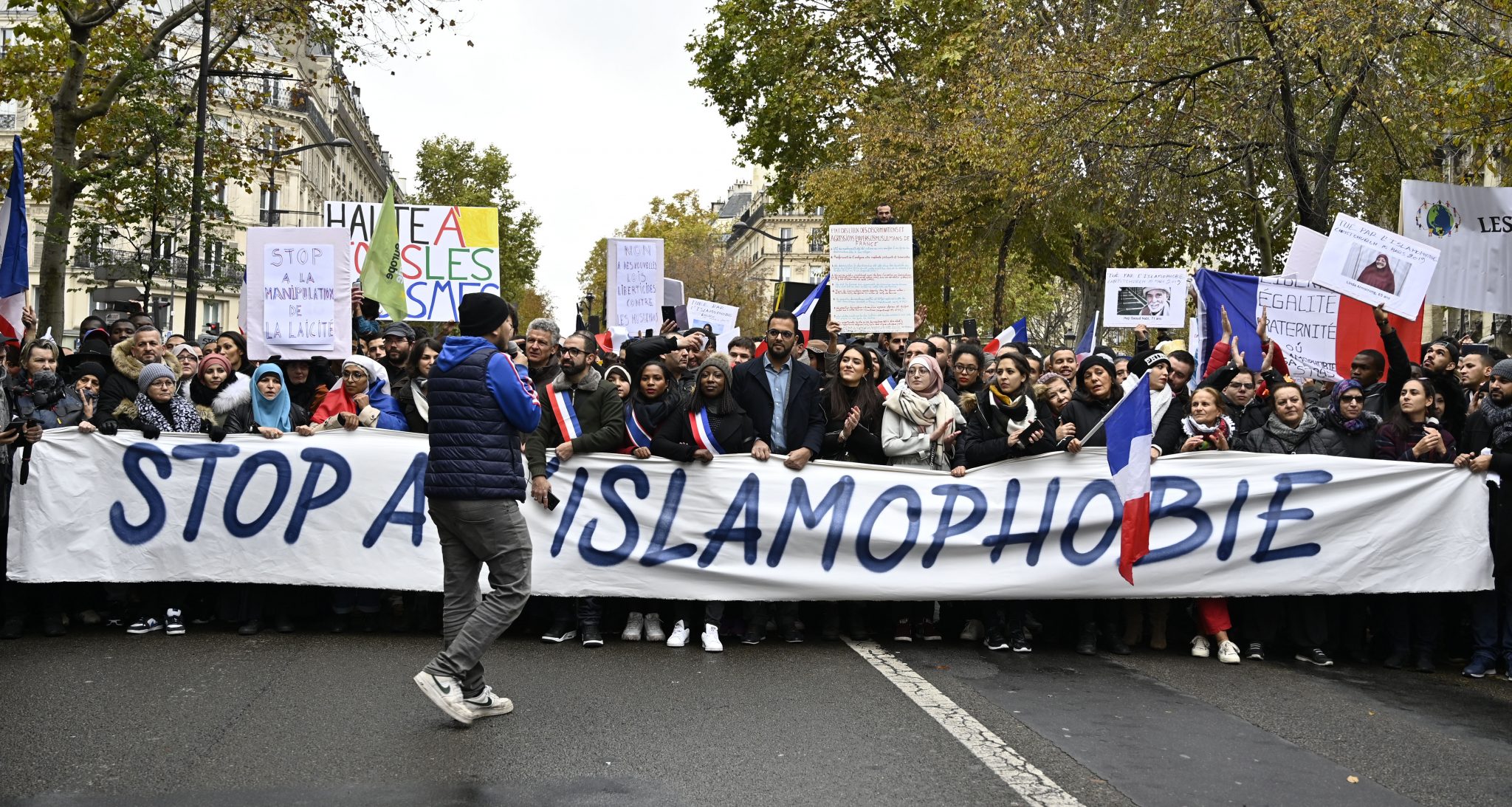
The Normandy Format was supported by the four countries, Germany, Russia, Ukraine, and France. It had met for the first time on June 6, 2014 in Normandy, where their leaders had met for celebrating the 70 anniversary of the landing of allies in Normandy, which finally had ended the World War-II. The Normandy Format has now been expanded to include Belarus, Italy and Britain.
Jacques Blames France
The document of Jacques Baud has clearly blamed France for sabotaging the Minsk-I and Minsk-II agreements, but it invoked the Normandy format; thus, allowing the cleansing of the Russian population from the two regions. The situation became grim following the refusal of Zelenskyy in implementing the promises made by Macron to Putin. It also reveals that the assassination of two high functionaries of the Ukrainian establishment, Denis Kireyev and Demyanenko, who were known for a peaceful solution, could be a part of a larger conspiracy to continue the ongoing war in the region. However, he also points out that the western media has not cared to report that the security forces of Ukraine and Russia are jointly keeping the Cheronobyl nuclear power station from being sabotaged.
The Swiss secret police official reveals that Zelenskyy was under the American pressure, because according to him, the US President Biden had deliberately did not allow any measures which could lead to peace, and he also points out that on what basis Biden could predict that Russia was planning to attack Ukraine on February 17, 2022. Meanwhile, the Ukrainian forces were shelling the civilian population of the two regions, who have sizeable Russian speaking population. Neither Biden asked to stop the artillery attacks nor did the European nations condemn it.
He further accuses the USA of pushing a reluctant Russia towards the conflict. The US-led western powers may feel that they have achieved their agenda of dragging Russia to this regional conflict, but Putin has achieved his strategic goal, and now Ukrainian people have to suffer the dream to become a part of NATO. Donetsk and Lugansk, the pre-dominant Russian speaking regions, had only asked for self-government or an autonomous region within Ukraine and the Russian as their official language.
The French Polls and Muslims
The beheading of a secondary school teacher, Samuel Paty, had alarmed the French authorities regarding the sizeable presence of Islamic radicals in France. It is alleged that Patty had shown the controversial cartoons of the Prophet Muhammad to his pupils. It enraged a Muslim youth, Abdoulakh, an 18-year-old Chechen, born in Moscow, who had been living in the Normandy town of Évreux, about 100 kilometres from the murder scene. He had no known links to either Paty or his school. It is stated that two Muslim clergies had issued a “fatwa” against the teacher.
Muslim headscarves took centre stage in France’s presidential campaign as both finalists in a tightly contested April 24 run-off were confronted by women in headscarves who asked why their clothing choices should be caught up in politics. France is home to Western Europe’s largest Muslim population and many Muslims feel the presidential campaign has unfairly stigmatized their faith.
Far-right candidate Marine Le Pen, who had been trailing Macron in the first round of the polling, has said she would ban headscarves in public and fine women who flout the ban. Macron has no such plans against Muslims, but his government has ordered the closure of several mosques and Islamic groups believed to be fostering radical Islamist opinions.
Neither candidate fared well among Muslim voters in the first round on April 10, with around 70% backing third-placed Jean-Luc Melenchon instead, according to pollsters.
Headscarf is red rag to Le Pen
Le Pen defended her position, calling the headscarf a “uniform imposed over time by people who have a radical vision of Islam.” However, it is being interpreted as a statement against Muslims. Le Pen’s opposition to the headscarf has encapsulated what her critics say makes her dangerous to French unity, by stigmatizing millions of French Muslims. Le Pen would also slash immigration and wants to outlaw ritual slaughter, which would restrict French Muslims’ and Jews’ access to halal and kosher meat.
The Muslims have traditionally voted for the left (Socialist and Communist Parties), motivated by the humanistic values that the left was supposed to uphold. But in recent decades Muslim voters (now second and third generation) have matured and their political leanings have become more diverse.







